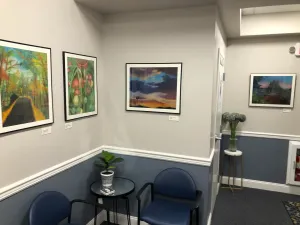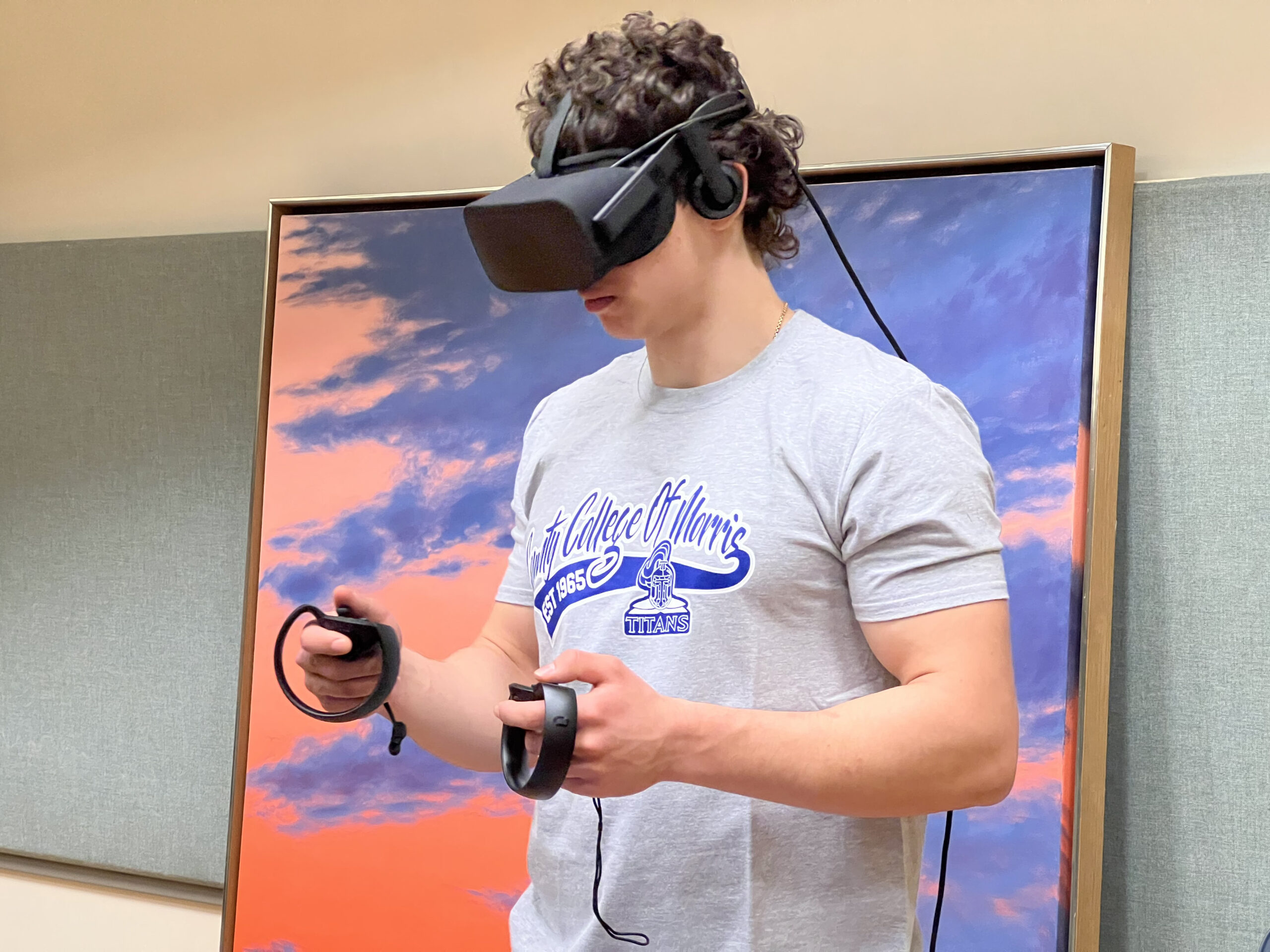What You Will Learn
If you are intrigued by the fashion industry and want to explore multiple areas of design and their influences within industry, society and profession, consider studying pursuing an Associate of Fine Arts degree at CCM. Five areas comprise the studio culture in the design program including fashion design.
At CCM you have the opportunity to learn an array of contemporary and traditional skills in state-of-the-art studios that open immediate career opportunities in the industry as Design Assistants or Interns, Pattern Making Assistants, and Fashion/Trade Show Assistants. Our program can also provide you a comprehensive foundation for transferring to a four-year college or university to pursue a Bachelor of Science or a Bachelor of Fine Arts degree in Fashion Design.
Curriculum
Our Fashion Design program features a combination of a 27-credit design core and a 13-credit fashion core. Design courses include 2D For Designers, Color Theory, Design Concepts, Design Rendering, Drawing, History of Design and a final Portfolio Preparation course enabling you to have your work presentable for professional job applications or future educational goals. The fashion core classes consist of Fashion Construction Technology and an Introduction To Sewing And Textiles, as well as opportunities for Electives and an Independent Study to round out your degree in design.
Careers in the Field
The CCM program is a perfect fit if you are seeking to launch your career in fashion design in one of the following roles:
- Fashion Design Assistant
- Fashion Design Intern
- Fashion Show Assistant
- Pattern Making Assistant
- Trade Show Assistant
Furthering your education with completion of a bachelor’s degree from a four-year college or university may open additional doors as a:
- Artist and Sketcher
- Assistant Designer
- Cutter
- Fashion Designer
- Pattern Grader
- Pattern Maker
- Set and Exhibit Designer
- Sewer
- Spec and Fit Technician
- Specialty Designer
- Trend Researcher
Upon completion of the AFA degree, the majority of Fashion Design track students at CCM transfer to earn a Bachelor of Fine Arts (BFA) or Bachelor of Science (B.S.) degree. CCM graduates have transferred to the following institutions based on their CCM grade point average and portfolio:
- Centenary University
- Fashion Institute of Design and Merchandising (FIDM)
- Fashion Institute of Technology (FIT)
- Jefferson (Philadelphia University + Thomas Jefferson University)
- Marist College
- Montclair State University
- Parsons School of Design
- Pratt Institute
- Savannah College of Art and Design (SCAD)
Why Study Fashion Design at CCM?
- Studio classrooms with state-of-the-art equipment and software specifically for design students.
- Materials and resources that allow extensive opportunities for creative exploration in research and process.
- Studio class size average is 12:1 fostering a mentoring relationship between the student and professor.
- Faculty are dedicated and highly accomplished with many maintaining a professional practice, bringing real world problems to the design curriculum and classroom.
- Over 50 student clubs and organizations, including the Fashion Club, plus Division II/III athletic opportunities.
Paying for Your Fashion Design Education
Earning an associate degree in design is a powerful investment that will pay off over the course of your life, in both increased earnings and job satisfaction. But what is the upfront cost, and how do you afford it?
There’s good news: Money is available to help you pay for school! Our Financial Aid staff can provide lots of information about the process of finding funds to help pay for your education.
Featured Courses
Fashion Construction Technology I
This course takes a hands-on approach to the design, construction and presentation of fashion apparel, custom made clothing and costuming for stage and screen. Construction techniques, fabrics, tools and equipment are explored in detail in the classroom and the community. Draping as a means of design and basic pattern drafting are explored. Students develop the skills necessary to construct and present projects of their own design to a panel of peers and professionals.
Introduction to Sewing and Textiles
A studio course that introduces the student to the primary aspects of fashion construction and textiles as they relate to garments. Content includes an overview of industry related equipment, tools, and patterns. Students will also be introduced to textiles, samplers, textile selections and simple garment construction.
Drawing for Designers
A studio course that introduces the design student to the many techniques of drawing required for a design professional. The course explores perspective, line quality and the graphic visualization process as well as method, materials and subject matter. Students learn to use rapid visualization skills in solving complex design problems.
Resources
Your Fashion Design Faculty Advisor
Kelly Whalen Design and Media Studies Department Chair, Special Project, Design AFA, Associate Professor
Email: kwhalen@ccm.edu
Office: Design and Media Studies – Emereti Hall Room-106
Office hours: Monday: 9:30-11:30am, Wednesday: 1:30-2:30pm
Phone: 973-328-5416
Specialization: Design Special Projects Leader
Department: Design and Media Studies
Natalie Holmes-Mitchell Instructor of Design
Email: nholmes-mitchell@ccm.edu
Office: EH-106
Office hours: Monday: 12:40-1:30pm, Tuesday: 10:20am-12:30pm
Phone: 973-328-5437
Department: Design and Media Studies



